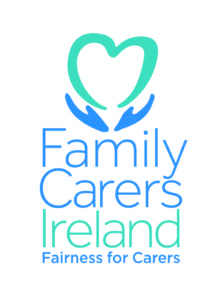
A carer has no automatic rights to information, owing to considerations of patient confidentiality; but, where the patient has consented to sharing of information, clinicians are encouraged to involve carers in dialogue (See National Cancer Strategy 2017-2026, pp. 93, 107, 108, 130 – http://health.gov.ie/blog/publications/national-cancer-strategy-2017-2026/ )
Right to special leave
Carer’s Leave of up to 104 weeks can be granted, and the employee’s position, as far as is feasible, must be kept open for them. This is available to all carers, and there is no special provisions in legislation relating to cancer. http://www.citizensinformation.ie/en/employment/employment_rights_and_conditions/leave_and_holidays/carers_leave_from_employment.html
Right to flexibility at work
There is a right to request part-time work, and an employer’s grounds for refusing the request must be reasonable and non-discriminatory. There is not currently a right to request flexible working hours. (This is available to all workers, not only carers.) http://www.citizensinformation.ie/en/employment/types_of_employment/employment_rights_of_part_time_workers.html
Right to benefit for caring
Carer’s Benefit is paid to those who give up work to care, by taking Carer’s Leave. Carer’s Allowance is also available, which is a means-tested payment and classed as a social welfare payment or form of social assistance.
Recipients of Carer’s Benefit and Carer’s Allowance (see next q.) can continue to work for up to 15 hours per week.
Main sources of information on cancer and cancer caring
Main sources of information on breast cancer
- https://www.cancer.ie/cancer-information/breast-cancer#sthash.Tp13beAo.dpbs
- http://www.breastcancerresearch.ie/
An individual can also speak to a general practitioner for further referrals, and carers can contact the Irish Cancer Society or join one of the ICS support groups. The Marie Keating Foundation also has a mobile cancer information unit, which is free of charge.
Health services focused on cancer
There are eight designated Cancer Centres in Ireland. Four are in Dublin, and three in the Munster region. http://www.hse.ie/eng/services/list/5/cancer/about/services/ The lack of dedicated cancer care facilities for those living in the northwest or midlands has on occasion been criticised (these populations would be served by a mix of Galway, Limerick and Dublin units).
Note that the coordination of care between acute and community settings is not always successful, but this is not restricted to cancer care.
Breast Cancer Units
Many major Irish hospitals would have a dedicated breast cancer unit. The group Breast Cancer Research Ireland supports research and treatment of breast cancer in the National University of Ireland, Galway University Hospital http://www.breastcancerresearch.ie/about-us/. The Breast-Predict programme (https://www.cancer.ie/research/collaborative-cancer-research-centres/breast-predict#sthash.OmkzYrrX.dpbs) was launched in 2013 as a 5-year initiative to try and establish a national centre for breast cancer research.
Is the informal carer officially recognised as a member of the caring team?
There is no official policy to support this, other than sharing of information with the patient’s consent, and how far carers are recognised as real members of a care team most likely varies depending on the clinical teams involved
Psychological support and guidance
Family Carers Ireland (www.familycarers.ie) runs carer support groups around the country. There are some specialist carer groups, but none related to cancer as yet. Family Carers Ireland also provides advice and support to young carers, as does the website www.spunout.ie, focusing on young people’s mental health. Inexpensive counselling is provided by PCI College, with whom Family Carers Ireland has a relationship and to which it can refer carers. http://www.pcicollege.ie/counselling-service/lowcostcounselling.
The Irish Cancer Society also runs a counselling service for cancer patients and their carers or other family members: https://www.cancer.ie/support/counselling#sthash.b0wMzO0x.dpbs.
Preventative health services
The Breastcheck programme, including free screening for breast cancer is available to all women aged 50-64. A database of eligible women is compiled by various governmental agencies, or eligible women can register themselves if they search the database online and cannot find themselves. https://www.breastcheck.ie/
For carers, Family Carers Ireland will provide advice on self-care and protecting oneself from burnout, whether through its network of Carer Support Centres or via literature such as the Carer’s Companion.
Respite care
Respite Care is provided by the Health Service Executive, or by private or not-for-profit providers on behalf of the HSE. (It can also be purchased commercially, but is expensive.) The demand significantly outweighs the supply of respite care, however, and there is a shortage of both in-home and residential respite nationwide.
National policy framework regarding cancer
The National Cancer Strategy 2017-2026 http://health.gov.ie/blog/publications/national-cancer-strategy-2017-2026/ governs cancer treatment policy nationally.
Does the national policy framework recognise the role of the informal carers?
Yes. The National Cancer Strategy states that:
“clinicians and providers of services to cancer patients must ensure that information is available to patients and their carers in a manner that is appropriate, accessible and understood.” (p 108)
“The introduction of an Electronic Health Record (EHR) is the cornerstone of the eHealth Strategy. A national EHR will support the creation and sharing of key patient information and will consist of core operational solutions (such as ePrescribing and Case Management) along with the ability to aggregate data into a comprehensive national record accessible to health and social care professionals, as well as to patients, service users and carers” (p 130).
The Health Service Executive also has pages dedicated to carers generally: http://www.hse.ie/eng/services/list/4/olderpeople/carersrelatives/
National policy framework regarding breast cancer
The Breastcheck programme makes free screening for breast cancer available to all women aged 50-64. A database of eligible women is compiled by various governmental agencies, or eligible women can register themselves if they search the database online and cannot find themselves. https://www.breastcheck.ie/ . This programme is effectively implemented but there are sometimes calls for the upper and/or lower age limits to be changed to facilitate more women.
Does the national policy framework recognise the role of the informal carers?
Yes, see: https://www.breastcheck.ie/guide-to-breast-screening_information-for-carers
Public authorities in charge at the regional level
The Health Service Executive (HSE) is in charge of coordinating all aspects of health policy nationally, and is responsible for the National Cancer Care Programme http://www.hse.ie/eng/services/list/5/cancer/
Main stakeholders in the field of research on cancer and cancer caring:
National Cancer Registry Ireland https://www.ncri.ie/
Breast-Predict is a collaboration between the Irish Cancer Society and many of the main Irish Universities and their associated University Hospitals https://www.cancer.ie/research/collaborative-cancer-research-centres/breast-predict#sthash.OmkzYrrX.dpbs. Partners Include:
Irish Cancer Society: https://www.cancer.ie/research
University College Cork
University College Dublin
Trinity College Dublin
Royal College of Surgeons Ireland
National University of Ireland Galway
Dublin City University
Cancer Trials Ireland http://www.cancertrials.ie/
Relevant civil society organisations who can provide support to informal carers:
Family Carers Ireland www.familycarers.ie
Breast Cancer Ireland https://www.breastcancerireland.com/;
Irish Cancer Society https://www.cancer.ie/
Marie Keating Foundation http://www.mariekeating.ie/
Breast Cancer Research Ireland http://www.breastcancerresearch.ie/
Irish Association for Palliative Care http://www.iapc.ie/
All Ireland Institute of Hospice and Palliative Care http://aiihpc.org/
Information gathered by Family Carers Ireland in January 2018.
Contact: pomahoney@familycarers.ie (Campaigns Researcher, Eurocarers Research Working Group Representative); cduffy@familycarers.ie (Policy & Public Affairs Officer, Eurocarers Policy Working Group Representative)

